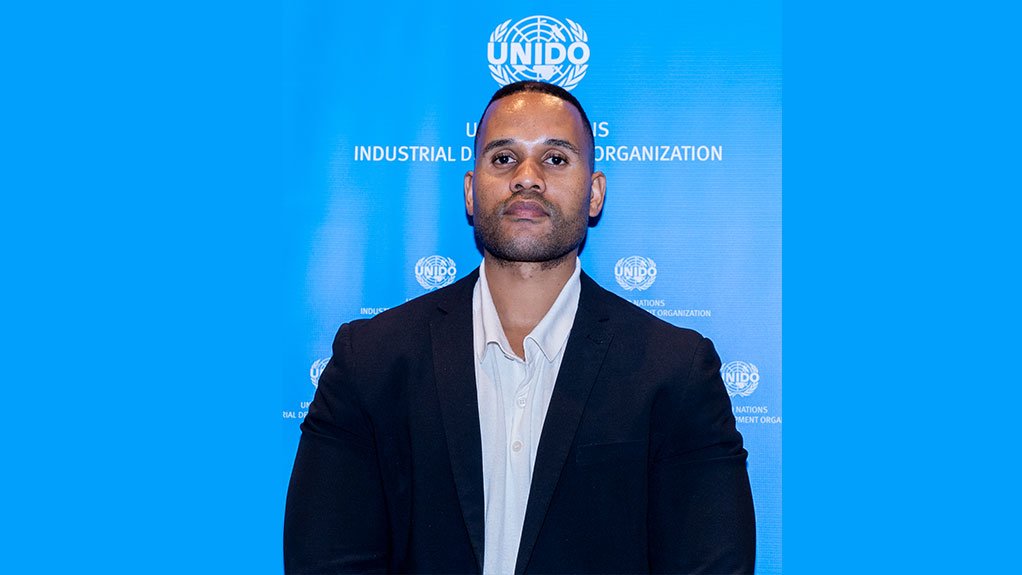Building climate resilience: The power of the water-energy nexus


Mchenge Nyoka is a National Project Coordinator at the United Nations Industrial Development Organisation (UNIDO) in South Africa
This article has been supplied.
In an era where climate change increasingly affects water and energy resources, the need for climate resilience in agriculture and agroprocessing has never been more pressing.
South Africa, in particular, faces unique challenges owing to severe water scarcity, fluctuating energy availability, and sectors relying heavily on water and energy. But within these challenges lies an opportunity to reshape the future. Through the lens of the Water-Energy Nexus, South Africa can harness the power of integrated solutions to build climate resilience in agriculture and agroprocessing.
The Water-Energy Nexus: A New Paradigm for Resilience
The relationship between water and energy is deeper than we often realise, especially in agriculture and agroprocessing. Agriculture is the largest consumer of freshwater in South Africa, with irrigation alone accounting for a staggering 62% of total freshwater use. Meanwhile, agroprocessing relies heavily on both water and energy, whether it is for milling, preservation, packaging or refrigeration.
The interdependence of these resources means that addressing one without the other is futile. The Water-Energy Nexus recognises this connection and advocates for a holistic approach that optimises both water and energy use simultaneously. It is not just about tackling one challenge at a time—it is about understanding how the two can work in harmony to build a sustainable future.
Embracing Innovation: Renewable Energy and Water Efficiency
Innovation is the heartbeat of resilience. For agriculture and agroprocessing, this means rethinking how we produce food, generate energy and manage water.
Renewable energy is at the forefront of this transformation. Solar-powered irrigation systems, for example, are revolutionising water management by reducing dependence on the national power grid. Solar pumps and systems can provide water where it is needed most, especially in remote areas, while lowering energy costs and reducing carbon footprint. Biogas from agricultural waste is another solution, turning farm byproducts into renewable energy, reducing fossil fuel dependence, and improving waste management.
Efficient water management is also crucial. Drip irrigation minimises water waste by delivering moisture directly to plant roots, enhancing water conservation. Additionally, water recycling and reuse in agroprocessing facilities can significantly reduce water consumption, cutting costs and environmental impact.
Further, smart technologies like Internet of Things sensors and automated systems provide real-time data, optimising water and energy use. These innovations help farmers and agroprocessors manage resources efficiently, minimising waste and improving overall productivity.
Cultivating a Culture of Sustainability
Technology alone cannot build climate resilience. It is the mindset, the culture and the shared commitment to sustainability that drives true transformation.
For resilience to thrive, it is crucial to empower farmers and agroprocessors to become responsible stewards of their resources. This means helping them understand the value of every drop of water and kilowatt of energy, highlighting the long-term benefits of sustainable practices for a more productive and prosperous future.
Capacity building plays a key role in this process. Through training and know-
ledge-sharing, farmers and agroprocessors gain the skills to efficiently manage resources. By mastering advanced irrigation systems and renewable energy solutions, they can lead innovation and sustainability in their communities.
The Role of Partnerships and Policy
No single entity can build climate resilience alone. Collaboration between governments, industries, academia and communities is essential for building climate resilience. Public-private partnerships, supportive policy frameworks, strategic financing and investment in research and development are key to driving the adoption of water- and energy-efficient technologies. These efforts ensure the long-term sustainability and resilience of agriculture and agroprocessing.
The Path Forward: A Resilient and Sustainable Future
South Africa’s journey to a green and resilient economy is underway, but it is through the application of integrated solutions—like those promoted by the Flanders-funded Strengthened Adaptation Capacity for a Green and Resilient Economy in South Africa project, implemented by UNIDO in collaboration with local stakeholders —that the country can hope to overcome its climate challenges.
The time to act is now. By investing in renewable energy, optimising water use, and embracing innovation, South Africa’s agricultural and agroprocessing sectors can become resilient, sustainable and prosperous. The Water-Energy Nexus offers a transformative approach to secure food security, economic growth and environmental stewardship in a changing climate.
- Mchenge Nyoka is a National Project Coordinator at the United Nations Industrial Development Organisation (UNIDO) in South Africa. He is responsible for project implementation by coordinating activities and resources for UNIDO’s projects in the field of Sustainable Energy.
Article Enquiry
Email Article
Save Article
Feedback
To advertise email advertising@creamermedia.co.za or click here
Press Office
Announcements
What's On
Subscribe to improve your user experience...
Option 1 (equivalent of R125 a month):
Receive a weekly copy of Creamer Media's Engineering News & Mining Weekly magazine
(print copy for those in South Africa and e-magazine for those outside of South Africa)
Receive daily email newsletters
Access to full search results
Access archive of magazine back copies
Access to Projects in Progress
Access to ONE Research Report of your choice in PDF format
Option 2 (equivalent of R375 a month):
All benefits from Option 1
PLUS
Access to Creamer Media's Research Channel Africa for ALL Research Reports, in PDF format, on various industrial and mining sectors
including Electricity; Water; Energy Transition; Hydrogen; Roads, Rail and Ports; Coal; Gold; Platinum; Battery Metals; etc.
Already a subscriber?
Forgotten your password?
Receive weekly copy of Creamer Media's Engineering News & Mining Weekly magazine (print copy for those in South Africa and e-magazine for those outside of South Africa)
➕
Recieve daily email newsletters
➕
Access to full search results
➕
Access archive of magazine back copies
➕
Access to Projects in Progress
➕
Access to ONE Research Report of your choice in PDF format
RESEARCH CHANNEL AFRICA
R4500 (equivalent of R375 a month)
SUBSCRIBEAll benefits from Option 1
➕
Access to Creamer Media's Research Channel Africa for ALL Research Reports on various industrial and mining sectors, in PDF format, including on:
Electricity
➕
Water
➕
Energy Transition
➕
Hydrogen
➕
Roads, Rail and Ports
➕
Coal
➕
Gold
➕
Platinum
➕
Battery Metals
➕
etc.
Receive all benefits from Option 1 or Option 2 delivered to numerous people at your company
➕
Multiple User names and Passwords for simultaneous log-ins
➕
Intranet integration access to all in your organisation

















